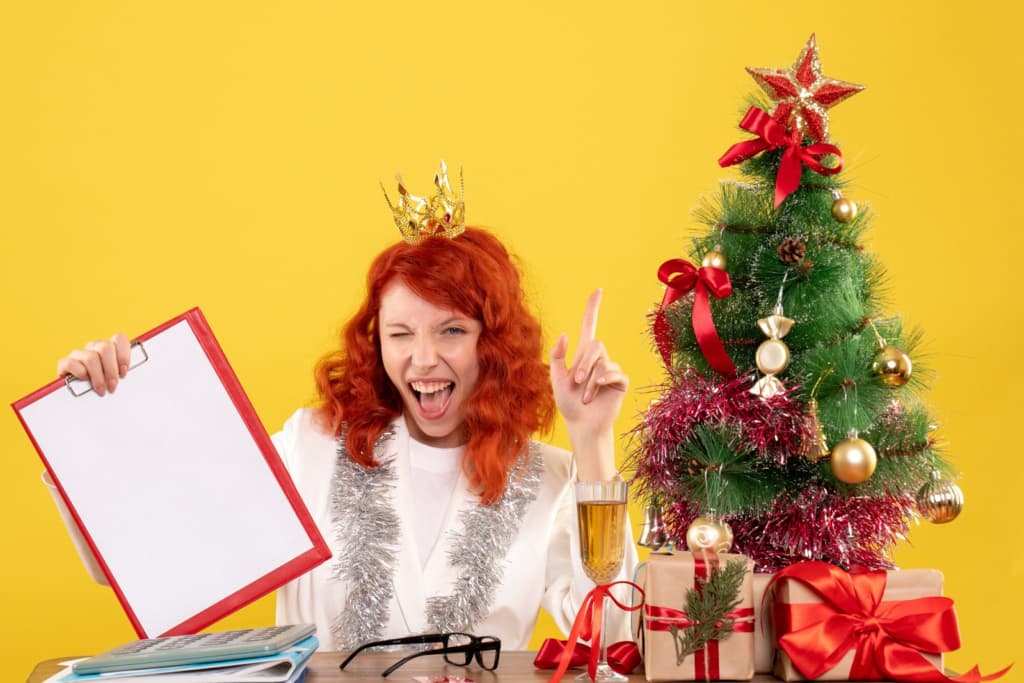10 Festive English Idioms
As the holiday season approaches, it’s the perfect time to brush up on your English idioms. These phrases are an essential part of the language and can add a touch of humor and personality to your conversations. Idioms are expressions that have a figurative meaning different from their literal interpretation. They often reflect cultural references and can be challenging for non-native speakers to understand. However, mastering idioms is crucial for truly perfecting your English skills.
In this article, we will explore 10 festive English idioms that everyone should know. From Christmas-themed expressions to general sayings with a twist, these idioms will not only help you understand native speakers better but also impress them with your knowledge. So let’s dive in and learn some fun and useful idioms for the holiday season and beyond.
1. Christmas Came Early This Year
What’s the significance? When something good but surprising happens.
How do you use it? If you experience something unexpected that you’re grateful for, you can use this expression to show your delight. Perhaps you received an unexpected gift from your friend, or got some really good news about a job you applied for — it looks like Christmas came early this year! You can use this idiom all year round — in fact, the further away Christmas is, the more joy you express.
Example: I got a surprise promotion at work today. It looks like Christmas came early this year!
This idiom is perfect for expressing your excitement and gratitude when something unexpected and positive happens. It implies that the event is so good that it feels like receiving a gift during the holiday season. Use it to show your appreciation and happiness for any pleasant surprise.
2. Good Things Come in Small Packages
What’s the significance? The size of something does not determine its value or quality.
How do you use it? You can use this expression to describe something or someone who may seem small or insignificant but has great value or potential. It can also be used to encourage someone who may feel discouraged due to their size or appearance.
Example: Don’t underestimate the new intern. Good things come in small packages, and she’s full of great ideas.
This idiom is often used to remind people not to judge something or someone based on their size or appearance. It suggests that there is more to something than meets the eye and encourages people to look beyond superficial qualities.
3. Lit Up Like a Christmas Tree
What’s the significance? To be very happy or excited.
How do you use it? This expression is used to describe someone who is extremely joyful or enthusiastic about something. It can also be used to describe a place or event that is filled with excitement and energy.
Example: The children were lit up like a Christmas tree when they saw all the presents under the tree.
This idiom is perfect for describing someone’s happiness or excitement. It compares their emotions to the bright and colorful lights on a Christmas tree, making it a fun and festive expression to use during the holiday season.
4. The More the Merrier
What’s the significance? The more people there are, the more enjoyable an event or activity will be.
How do you use it? This expression is often used to invite more people to join an event or gathering. It can also be used to express that having a larger group of people will make an event more fun and lively.
Example: We’re having a potluck dinner tonight. Feel free to bring your friends along. The more the merrier!
This idiom is commonly used to encourage people to invite more guests to a party or event. It implies that having more people will make the event more enjoyable and lively.
5. To Go on a Wild Goose Chase
What’s the significance?To pursue something that is unlikely to be successful or to waste time and effort on a fruitless task.
How do you use it? This expression is used to describe a situation where someone is chasing after something that is difficult to obtain or achieve. It can also be used to express frustration or annoyance at having to engage in a pointless activity.
Example: I’ve been looking for my keys for hours, but it’s like going on a wild goose chase. I can’t find them anywhere.
This idiom is perfect for describing a frustrating and futile search for something. It suggests that the person is wasting their time and effort on something that may not have a positive outcome.
6. The Proof is in the Pudding
What’s the significance? The true value or quality of something can only be determined by experiencing or trying it.
How do you use it? This expression is often used to suggest that the best way to judge something is by experiencing it firsthand. It can also be used to emphasize the importance of trying something before making a judgment.
Example: Don’t just take my word for it. Try the cake I made. The proof is in the pudding.
This idiom is commonly used to encourage people to try something before forming an opinion about it. It implies that the true value or quality of something can only be determined by experiencing it.

7. Like Turkeys Voting for Christmas
What’s the significance? To make a decision or take an action that will ultimately harm oneself.
How do you use it? This expression is used to describe a situation where someone is making a decision that will have negative consequences for themselves. It can also be used to express disbelief or shock at someone’s actions.
Example: The employees voted to cut their own benefits. It’s like turkeys voting for Christmas.
This idiom is often used in a humorous or sarcastic way to describe a situation where someone is making a decision that goes against their best interests. It suggests that the person is acting foolishly or naively.
8. Be There with Bells On
What’s the significance? To be very excited and enthusiastic about attending an event or gathering.
How do you use it? This expression is used to express one’s eagerness and excitement about attending an event or gathering. It can also be used to confirm one’s attendance in a fun and enthusiastic way.
Example: I can’t wait for the holiday party tonight. I’ll be there with bells on!
This idiom is perfect for expressing your enthusiasm and excitement about attending an event. It implies that you are looking forward to the event and will be fully present and engaged.
9. Don’t Look a Gift Horse in the Mouth
What’s the significance? To be ungrateful or critical of a gift or opportunity.
How do you use it? This expression is used to remind someone not to criticize or question the value of a gift or opportunity they have received. It can also be used to encourage someone to be grateful and appreciative of what they have been given.
Example: You may not like the color, but don’t look a gift horse in the mouth. It’s the thought that counts.
This idiom is commonly used to remind people to be grateful and appreciative of what they receive, even if it may not be exactly what they wanted. It suggests that it is impolite to criticize or question the value of a gift or opportunity.
10. A Christmas Miracle
What’s the significance? An unexpected and miraculous event.
How do you use it? This expression is used to describe a highly unlikely and fortunate event. It can also be used in a sarcastic or humorous way to describe something that is not very miraculous.
Example: I never thought I’d win the lottery, but it happened. It’s a Christmas miracle!
This idiom is often used during the holiday season to describe an unexpected and positive event. It implies that the event is so unlikely that it feels like a miracle.
10 English Idioms for Holiday Conversations
Conclusion
Idioms are an essential part of the English language and mastering them can greatly improve your understanding and communication skills. These 10 festive English idioms are just a small sample of the many expressions used in the language. By learning and using idioms, you can add a touch of personality and humor to your conversations and impress native speakers with your knowledge.
So next time you’re feeling lit up like a Christmas tree or going on a wild goose chase, remember these idioms and use them to express yourself in a fun and unique way. Happy holidays and happy learning!
